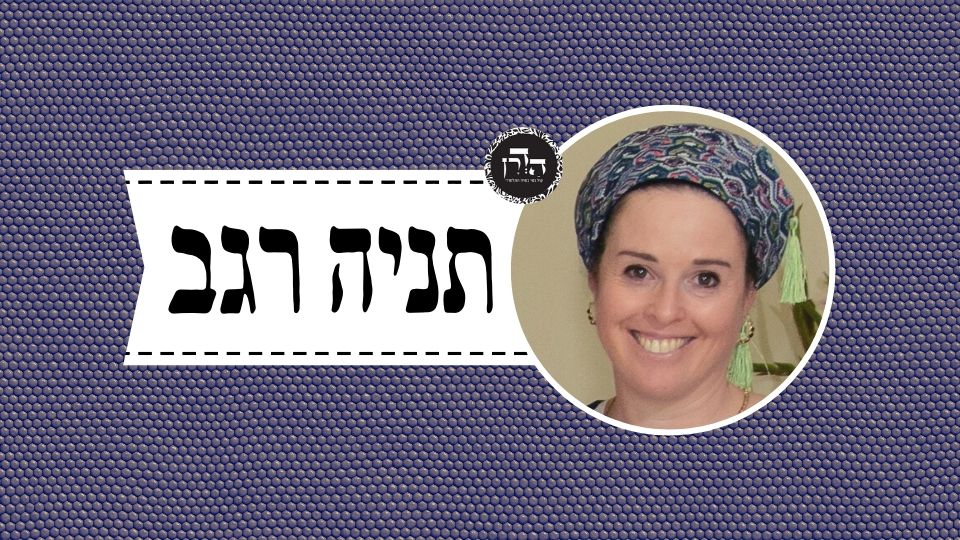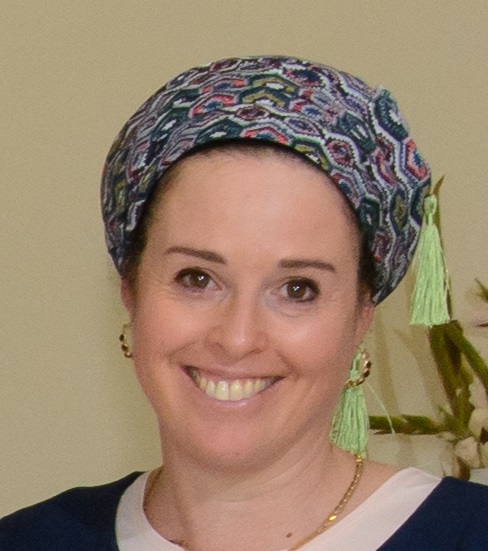שבת פד
וְלַחֲנַנְיָא טִילְטוּל עַל יְדֵי שְׁוָורִים שְׁמֵיהּ טִילְטוּל? אִין דִּתְנַן: שָׁלֹשׁ עֲגָלוֹת הֵן. עֲשׂוּיָה כְּקָתֶידְרָא — טְמֵאָה מִדְרָס. כְּמִטָּה — טְמֵאָה טְמֵא מֵת. שֶׁל אֲבָנִים — טְהוֹרָה מִכְּלוּם. וְאָמַר רַבִּי יוֹחָנָן: וְאִם יֵשׁ בָּהּ בֵּית קִבּוּל רִמּוֹנִים, טְמֵאָה טְמֵא מֵת.
And according to Ḥananya, who holds that a boat carried both full and empty can become ritually impure, is carrying by oxen considered carrying? He answered his own question. Yes, as we learned in a mishna: In terms of the halakhot of ritual purity and impurity, there are three distinct types of wagons: A wagon built like a chair, meaning closed on the sides, can become ritually impure with impurity imparted by treading. Since it is designated for sitting, it becomes impure if a zav sits on it, even if he does not touch it. A wagon built like a bed can become ritually impure with impurity imparted by a corpse. It contracts all types of impurity, except for impurity imparted by the treading of a zav. A wagon made of stone, whose bottom is netting, remains ritually pure and does not become impure from any type of impurity. And Rabbi Yoḥanan said: And if in the stone wagon there is a receptacle for pomegranates, i.e., the holes are not large enough for a pomegranate to fall through, it is considered a utensil and it can become impure with impurity imparted by a corpse. Even though a stone wagon is not carried full, but is pulled by oxen, it can become ritually impure. Apparently, carrying by oxen is considered carrying.
שָׁלֹשׁ תֵּיבוֹת הֵן: תֵּיבָה שֶׁפִּתְחָהּ מִצִּדָּהּ — טְמֵאָה מִדְרָס. מִלְּמַעְלָה — טְמֵאָה טְמֵא מֵת. וְהַבָּאָה בְּמִדָּה, טְהוֹרָה מִכְּלוּם.
By association, the Gemara now cites the second part of the mishna: With regard to laws of impurity, there are three types of chests: A chest that opens from the side, on which one can sit or lie, because it can be used for sitting, it can become ritually impure with impurity imparted by treading if a zav sits on it. Even if one needs to open the chest, a person can keep sitting on it. A chest that opens from the top does not become ritually impure with impurity imparted by treading because it cannot be opened with somebody on it. However, it can become impure with impurity imparted by a corpse. And a chest that comes in a very large size, and can hold more than forty se’a, remains ritually pure and does not become impure from any type of impurity.
תָּנוּ רַבָּנַן: מִדְרַס כְּלִי חֶרֶס טָהוֹר. רַבִּי יוֹסֵי אוֹמֵר: אַף הַסְּפִינָה. מַאי קָאָמַר? אָמַר רַב זְבִיד, הָכִי קָאָמַר: מִדְרַס כְּלִי חֶרֶס — טָהוֹר, וּמַגָּעוֹ טָמֵא, וּסְפִינָה שֶׁל חֶרֶס טְמֵאָה כַּחֲנַנְיָא. רַבִּי יוֹסֵי אוֹמֵר: אַף הַסְּפִינָה טְהוֹרָה, כְּתַנָּא דִידַן. מַתְקִיף לַהּ רַב פָּפָּא: מַאי ״אַף״? אֶלָּא אָמַר רַב פָּפָּא, הָכִי קָאָמַר: מִדְרַס כְּלִי חֶרֶס — טָהוֹר, וּמַגָּעוֹ טָמֵא. וְשֶׁל עֵץ, בֵּין מִדְרָסוֹ וּבֵין מַגָּעוֹ — טָמֵא, וּסְפִינַת הַיַּרְדֵּן — טְהוֹרָה כְּתַנָּא דִידַן. רַבִּי יוֹסֵי אוֹמֵר: אַף הַסְּפִינָה טְמֵאָה, כַּחֲנַנְיָא.
The Sages taught in a baraita: With regard to impurity imparted by treading, an earthenware vessel is ritually pure. If a zav sits on an earthenware vessel and does not touch the inside of it, it does not become impure. Rabbi Yosei says: That is even the status of a ship. The Gemara asks: What is the baraita saying? Rav Zevid said that the baraita is saying the following: According to the first tanna, with regard to impurity imparted by treading, an earthenware vessel is ritually pure; however, if the zav touches the vessel it becomes impure. And an earthenware ship can become impure with impurity imparted by the treading of a zav, in accordance with the opinion of Ḥananya. Rabbi Yosei says: Even a boat is ritually pure, in accordance with the opinion of the tanna of our mishna. Rav Pappa strongly objects to this explanation: If so, what is the meaning of the word even employed by Rabbi Yosei, indicating that he is adding to the opinion of the first tanna of the baraita? According to the above explanation, the first tanna says that a boat can become ritually impure and Rabbi Yosei says that it is pure. Rabbi Yosei is not adding to the previous opinion but disagreeing with it. Rather, Rav Pappa said that the baraita is saying the following: With regard to impurity imparted by treading, an earthenware vessel is ritually pure, and with regard to its contact with a source of ritual impurity, it is impure. And as far as a wooden vessel is concerned, with regard to both its impurity imparted by treading and its contact with a source of ritual impurity, it is impure. And a Jordan ship is ritually pure in accordance with the opinion of the tanna of our mishna. Rabbi Yosei says: Even the boat is impure like other wooden vessels, in accordance with the opinion of Ḥananya.
וּמִדְרַס כְּלִי חֶרֶס מְנָלַן דְּטָהוֹר? אָמַר חִזְקִיָּה, דְּאָמַר קְרָא: ״וְאִישׁ אֲשֶׁר יִגַּע בְּמִשְׁכָּבוֹ״, מַקִּישׁ מִשְׁכָּבוֹ לוֹ: מָה הוּא אִית לֵיהּ טׇהֳרָה בְּמִקְוֶה — אַף מִשְׁכָּבוֹ נָמֵי אִית לֵיהּ טׇהֳרָה בְּמִקְוֶה.
The Gemara questions what was stated: And from where do we derive that with regard to impurity imparted by treading, an earthenware vessel is ritually pure? Ḥizkiya said: It is as the verse states: “And whoever touches his bed shall wash his clothes, and bathe himself in water, and be impure until the evening” (Leviticus 15:5). The verse juxtaposes his bed to himself. Just as he has the possibility of purification through immersion in a ritual bath, so too, his bed is referring to a vessel that has the possibility of purification in a ritual bath. Since an impure earthenware vessel cannot be purified in a ritual bath, unlike other vessels, it does not become ritually impure when a zav lies on it.
דְּבֵי רַבִּי יִשְׁמָעֵאל תָּנָא: ״כְּמִשְׁכַּב נִדָּתָהּ יִהְיֶה לָּהּ״, מַקִּישׁ מִשְׁכָּבָהּ לָהּ: מָה הִיא אִית לַהּ טׇהֳרָה בְּמִקְוֶה — אַף מִשְׁכָּבָהּ נָמֵי אִית לַהּ טׇהֳרָה בְּמִקְוֶה, לְאַפּוֹקֵי כְּלִי חֶרֶס דְּלֵית לֵיהּ טׇהֳרָה בְּמִקְוֶה. מֵתִיב רַבִּי אִילְעָא: מַפָּץ בְּמֵת מִנַּיִן?
Similarly, the school of Rabbi Yishmael taught that the verse states: “Every bed on which she lies all the days of her zava emission shall be for her like the bed of her menstrual period” (Leviticus 15:26). The verse juxtaposes her bed to herself: Just as she has the possibility of purification in a ritual bath, so too, her bed is referring to a vessel that has the possibility of purification in a ritual bath. This is to the exclusion of an earthenware vessel, which does not have the possibility of purification in a ritual bath. Rabbi Ila strongly objects to this from what we learned: From where is it derived that a reed mat becomes ritually impure from contact with a corpse?
וְדִין הוּא: וּמָה פַּכִּין קְטַנִּים שֶׁטְּהוֹרִין בְּזָב — טְמֵאִים בְּמֵת, מַפָּץ שֶׁטָּמֵא בְּזָב, אֵינוֹ דִּין שֶׁיְּהֵא טָמֵא בְּמֵת?! וְאַמַּאי, הָא לֵית לֵיהּ טׇהֳרָה בְּמִקְוֶה! אֲמַר לֵיהּ רַבִּי חֲנִינָא: שָׁאנֵי הָתָם הוֹאִיל וְאִיכָּא בְּמִינוֹ.
And it is derived through an a fortiori inference: We know that small vessels do not become ritually impure through the impurity of a zav because they are not designated for sitting, and are too small for the zav to insert his finger into their airspace. If small earthenware pitchers remain pure and are not susceptible to the impurity of a zav, but they do become ritually impure from contact with a corpse; is it not logical that a reed mat, which contracts impurity from a zav, will become ritually impure from contact with a corpse? And why should the reed mat become impure? Isn’t it true that it does not have the possibility of purification in a ritual bath? Rabbi Ḥanina said to him: There, in the case of the mat, it is different because there is purification in other vessels of its kind, i.e., other wooden vessels that are made from materials that grow from the earth can be purified in a ritual bath.
אֲמַר לֵיהּ: רַחֲמָנָא לִיצְלַן מֵהַאי דַּעְתָּא: אַדְּרַבָּה, רַחֲמָנָא לִיצְלַן מִדַּעְתָּא דִידָךְ. וְטַעְמָא מַאי — תְּרֵי קְרָאֵי כְּתִיבִי. כְּתִיב: ״וְאִישׁ אֲשֶׁר יִגַּע בְּמִשְׁכָּבוֹ״, וּכְתִיב: ״וְכׇל הַמִּשְׁכָּב אֲשֶׁר יִשְׁכַּב עָלָיו הַזָּב יִטְמָא״. הָא כֵּיצַד? יֵשׁ בְּמִינוֹ, אַף עַל גַּב דְּלֵית לֵיהּ טׇהֳרָה בְּמִקְוֶה. אֵין בְּמִינוֹ, מַקִּישׁ מִשְׁכָּבוֹ לוֹ.
Rabbi Ila said to Rabbi Ḥanina: May the all-Merciful save us from this opinion. Rabbi Ḥanina responded: On the contrary, may the all-Merciful save us from your opinion. And what is the reason that this is relevant? What is the significance of the fact that other vessels of its kind can be purified in a ritual bath if the vessel itself cannot be purified in a ritual bath? It is because two verses are written. In one verse it is written: “And whoever touches his bed shall wash his clothes, and bathe himself in water, and be impure until the evening” (Leviticus 15:5). The verse juxtaposes his bed to himself. Just as he has the possibility of purification through immersion in a ritual bath, so too, his bed has the possibility of purification in a ritual bath. This teaches that his bed has the same legal status as he does; in order for a bed on which a zav lies to be subject to the impurity imparted by lying, it must be immersible in a ritual bath. And in another verse it is written: “Every bed on which the zav lies shall be impure; and every vessel on which he sits shall be impure” (Leviticus 15:4). This verse includes all beds on which a zav might lie, even one that cannot be purified in a ritual bath. How can these two verses be reconciled? If there is purification in other vessels of its kind, even though it itself does not have purification in a ritual bath, it is subject to the impurity imparted by lying. However, if there is no purification in other vessels of its kind, the verse juxtaposes his bed to himself. Any vessel that is not like him in the sense that it cannot be purified in a ritual bath, is not subject to impurity imparted by lying.
רָבָא אָמַר: מִדְרַס כְּלִי חֶרֶס טָהוֹר מֵהָכָא: ״וְכֹל כְּלִי פָתוּחַ אֲשֶׁר אֵין צָמִיד פָּתִיל עָלָיו״, הָא יֵשׁ צְמִיד פָּתִיל עָלָיו — טָהוֹר הוּא. מִי לָא עָסְקִינַן דְּיַחֲדִינְהוּ לְאִשְׁתּוֹ נִדָּה, וְקָאָמַר רַחֲמָנָא טָהוֹר!
Rava said: The fact that with regard to impurity imparted by treading, an earthenware vessel is ritually pure is derived from here, as it is stated: “And any open vessel that does not have a sealed cover on it becomes impure” (Numbers 19:15). By inference, if there is a sealed cover on it, it is pure. Are we not dealing even with a case where one designated the vessel for use by his wife, when she has the status of a menstruating woman? And even so, the Torah states that it is ritually pure? Apparently, an earthenware vessel with a sealed cover is not subject to impurity from any source.
מַתְנִי׳ מִנַּיִן לַעֲרוּגָה שֶׁהִיא שִׁשָּׁה עַל שִׁשָּׁה טְפָחִים שֶׁזּוֹרְעִין בְּתוֹכָהּ חֲמִשָּׁה זֵרְעוֹנִין, אַרְבָּעָה עַל אַרְבַּע רוּחוֹת הָעֲרוּגָה וְאַחַת בָּאֶמְצַע, שֶׁנֶּאֱמַר: ״כִּי כָאָרֶץ תּוֹצִיא צִמְחָהּ וּכְגַנָּה זֵרוּעֶיהָ תַצְמִיחַ״ — ״זַרְעָהּ״ לֹא נֶאֱמַר, אֶלָּא ״זֵרוּעֶיהָ״.
MISHNA: The Gemara continues to discuss an additional halakha based on a biblical allusion. From where is it derived that in a garden bed that is six by six handbreadths, that one may plant five different types of seeds in it? He may do so without violating the prohibition of sowing a mixture of diverse kinds of seeds in the following manner. One sows four types of plants on each of the four sides of the garden bed and one in the middle. There is an allusion to this in the text, as it is stated: “For as the earth brings forth its growth, and as a garden causes its seeds to grow, so will the Lord God cause justice and praise to spring forth before all the nations” (Isaiah 61:11). Its seed, in the singular, is not stated; rather, its seeds, written in the plural. Apparently, it is possible that several seeds may be planted in a small garden.
גְּמָ׳ מַאי מַשְׁמַע? אָמַר רַב יְהוּדָה: ״כִּי כָאָרֶץ תּוֹצִיא צִמְחָהּ״. ״תּוֹצִיא״ — חַד, ״צִמְחָהּ״ — חַד, הֲרֵי תְּרֵי. ״זֵרוּעֶיהָ״ — תְּרֵי, הָא אַרְבְּעָה. ״תַּצְמִיחַ״ — חַד, הָא חַמְשָׁה.
GEMARA: The Gemara questions this allusion: From where is it inferred that the verse refers to five types of seeds? Rav Yehuda said that it is derived as follows: “For as the earth brings forth its growth” indicates five types of seeds because “brings forth” represents one and “its vegetation” represents one, and that totals two. “Its seeds,” written in the plural, represents at least two, and that totals four. “Cause to grow” is one more. This verse includes terms connoting planting and seeds in a single garden bed that total five species of seeds.




































